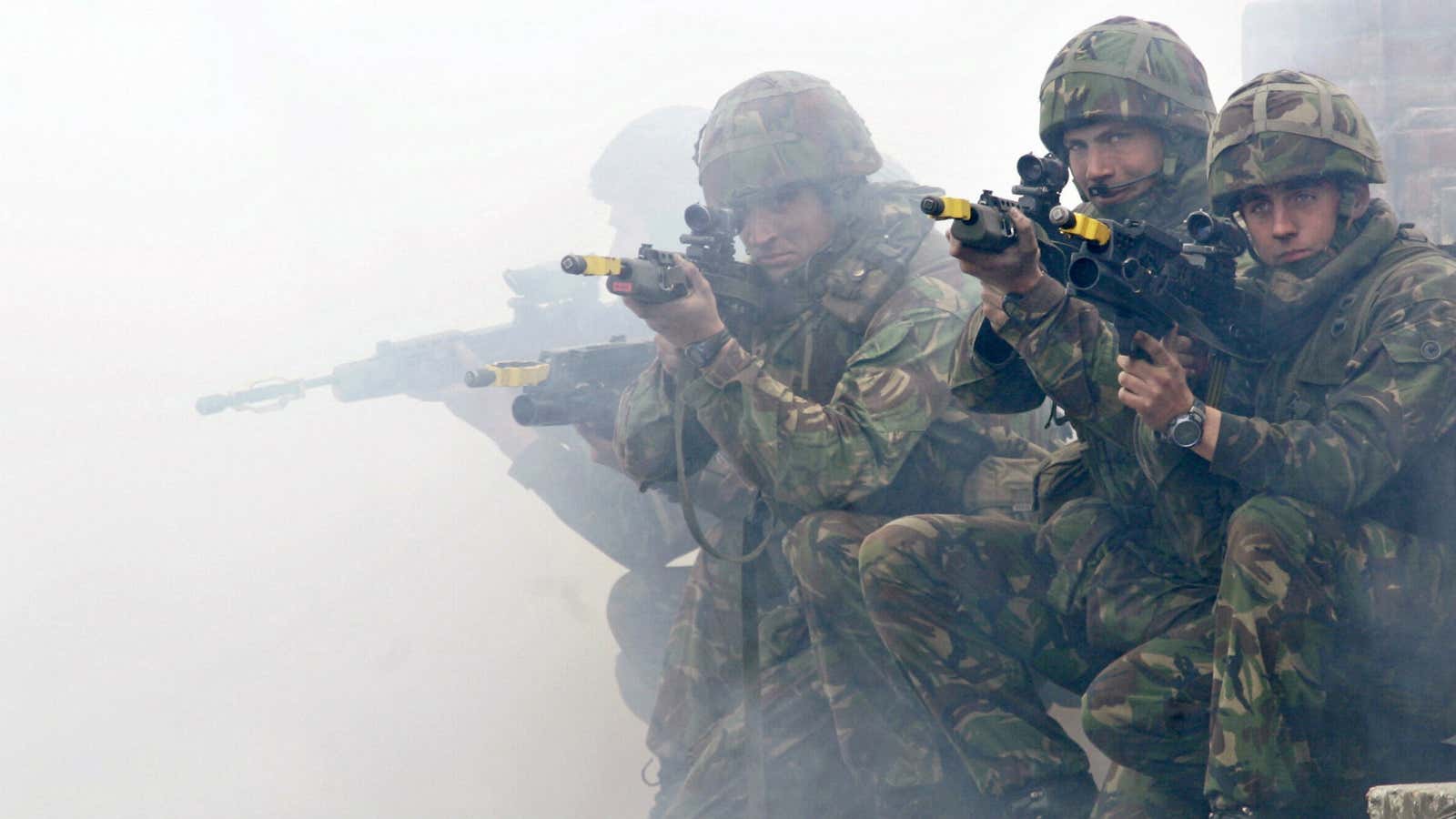Banks are bringing in the big guns. That’s not exactly a metaphor.
Over the past year, 15% percent of the new hires in Barclays’ compliance team came not from Harvard or Oxford, but the armed forces. These 46 new recruits have the characteristics banks are looking for as they scramble to rebuild trust after the near-collapse of the global financial system: loyalty, discipline, honor, and teamwork.
Never mind that the former soldiers may not know much about the banking industry. “We can teach them the compliance part,” Michael Roemer, the head of compliance at Barclays, told Quartz.
Recruiting from the armed forces is part of a dramatic revamp of the compliance department at the bank, Roemer said. Like other big banks, Barclays has invested heavily in bolstering its compliance capabilities (paywall). And Roemer himself now sits on the bank’s executive committee, a change from pre-crisis days.
Banks like Barclays are looking for ways to repair their tattered reputations and avoid future calamities like the rigging of foreign exchange benchmarks, peddling of toxic securities, and selling of bogus insurance that have dogged them for the past several years. For its part, Barclays has paid out some £6 billion ($9.3 billion) in fines, settlements, and other charges since 2011, and there is probably more in store.
Recruiting from the armed forces reflects how the bank’s hiring process is changing, Roemer said. “It’s less about experience and more about characteristics,” he said on a panel at an event in London run by the University of Cambridge Judge Business School.
General Sir Peter Wall, former chief of the general staff of the British army, told Quartz that “there’s a quest for people who bring well-rounded leadership and organizational skills” to banks these days. After the army, Wall founded a corporate leadership consultancy, Amicus, and has worked with Barclays.
Rules alone don’t prevent bad behavior, as banks have learned. Employees with a strong moral compass can be trusted more readily (and affordably) to stay out of trouble.
Another former officer turned consultant, Tim McEwan, said that the army can teach banks lots of lessons about building trust. “Trust is the very DNA of the British Army and at the heart of everything it does,” he told the Cambridge business school. Squad leaders “have to trust that the soldiers will ‘do the right thing’—you can’t be everywhere, all the time,” said McEwan, who has taught leadership at the Royal Military Academy Sandhurst.
American banks are ahead of their British counterparts in tapping the military for talent. But as budget cuts push soldiers into the private sector, some—it seems—will find themselves retrained as investment bankers.
Barclays’ military transition support program, set up in 2010, is called AFTER (Armed Forces Transition Employment and Resettlement). In the past two years, over 200 service leavers and veterans have found jobs at the bank, in a number of different roles, a Barclays spokesperson confirmed.
But just adding ex-soldiers to the compliance department won’t suddenly restore trust in banks. “If we make it a top priority we will crack it,” Wall told Quartz. “It’s like defeating ISIS.”
